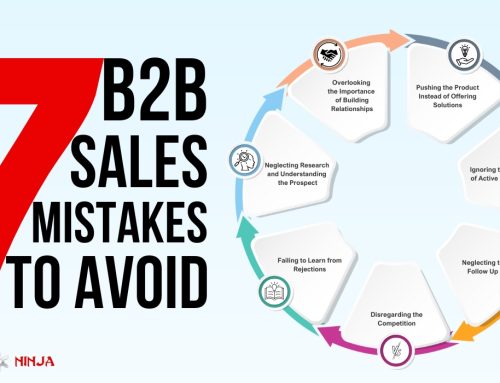You’re sitting at your desk, sipping coffee quietly. You’re on a call with a potential client and you’re focused on using all the cold calling skills you’ve learned online and have at your disposal. Your eyes scan your computer screen for any pre-researched information that might win you brownie points.
Suddenly, you see a shadow appear on your screen. The air becomes warm but you shiver with dread. You feel a firm hand on your shoulder and turn to see your team leader looking down at you with “crazy eyes”. He gestures to the screen, starts typing furiously, and proceeds to dictate the direction of the call for the next 15 minutes. You come off the call feeling drained and unmotivated – and your boss takes this time to berate you about what you could have done better.
Whether you are an overzealous senior member of the team that tends to look over a junior colleague’s shoulder or if you are a leader that does this – you would have been or will be a victim of micromanagement at some point in your career.
Here are the signs, effects, and reasons against micromanagement – be it as a leader yourself or as a team player working with your colleagues.
IDENTIFYING MICROMANAGEMENT
Companies are always actively working towards the “bigger picture”. This could be concerning the purpose and values of the organization. It can be in the form of total output, product delivery, customer journey, and so on. This is where managers, leaders, and division heads come into play – they are meant to steer their teams towards achieving this “big picture” by managing the relevant implementation strategies.
Micromanaging is similar to having a helicopter parent. It’s not difficult to imagine having your mum ask you to make your bed and then having her hover at your bedroom door. She makes the “tsk” sound when you do something she doesn’t agree with and then, in a huff, asks you to move out of the way as she makes the bed for you because she assumes you will not be able to do the task to her expectations.
Micromanagers have a high need for control and will feel the need to engross themselves in the work that they’ve allocated to others. As such, they are usually unable to look at things as a whole and cannot effectively delegate or establish clear-cut roles for their employees. Because micromanagers are also prone to snobbery – they will ignore the capabilities their colleagues might have in favor of their own perceived expertise. Another sure-fire way to spot a micromanager is to walk into the office space they occupy with their team and watch out for signs of demotivation, tension, and non-committal work.
A figure famous for his business acumen as well as his embodiment of the term “micromanager” is Steve Jobs – he was once described as having an “inhuman drive for perfection that can burn out even the most motivated worker” (Elon Musk is infamous for being a self-proclaimed “nano-manager”, making himself a billion times more detailed than regular managers). Nevertheless, if someone as revolutionary as Steve Jobs was a micromanager, shouldn’t we be emulating him? The simple answer: no.
Here are a few simple reasons why…
WHY NOT EMBRACE MICROMANAGEMENT
- You’d lose efficiency faster than if you left them to do their own work
In a 9-5 environment, with an hour taken off for lunch, you have 8 hours on the clock. Studies show that people are only actually productive for 2 hours and 53 minutes. The rest of the 5 or so hours is spent browsing social media, chatting with colleagues, snacking, taking toilet/smoke breaks. Within this, is there really time to be checking in on everyone’s work on top of your own? It might make you FEEL like you are being productive but how much time are you actually spending on the work you are meant to be doing? If your focus is only sharp for 2 hours and 53 minutes, will you be able to maximize the opportunities that come your way while formulating solutions for the challenges you might face? Your energy will deplete as you race around trying to correct minuscule details that should not concern you.
- Who is making the effort?
If you are the one spotting mistakes, constantly making changes, and driving suggestions for improvements– will your team be able to make the same effort you do when it comes to attention to detail? Let’s say you go off on a 2 week holiday, will you be able to hover over their work for the entire duration? They will have to work without your guidance and that’s when they will falter – they are so used to having you correct them that they will have developed the habit of skimming over mistakes. They know that you will be meticulous – why should they exert the same effort? The constant criticism will not only cause them to develop bad habits, but it will also cause them to fear innovation – something that needs to be avoided at all costs. Verbal discontent over their work will negatively affect their ability to take initiative, as they fear being shot down yet again.
- “Do you even trust me?”
In the end, it boils down to one important question: do you trust your employees? Are you comfortable delegating, providing the structure for them to follow, and then leaving them to reach the objective by themselves? If the answer is no – why did you hire them in the first place? Trust me, that’s the exact same thing they would be wondering as well. As a colleague and a leader, support them. Nitpicking at their work will not motivate them to push themselves as hard as giving them constructive criticism with points to improve upon that they can take with them and work independently to improve. You might see yourself as being supportive by helping them spot all the small issues early on, but you might only be demotivating them and limiting their space for growth. This will ultimately lead to them quitting and thus establishing a high turnover rate for the company.
Appointed CEO in 2014, Satya Nadella has made waves with his emphasis on culture, cloud tech, and – surprise! – culture. His strong stance on moving towards the cloud computing industry has led Microsoft to grow by US$250 billion, making it the world’s fourth most valuable company. Many analysts attribute this success to the attractiveness of working with Microsoft as they embrace and gear towards Industry 4.0. Another reason for such profound change? Nadella’s leadership style – based on empathetic communication and the growth mindset. Nadella has emphasized that he promotes focus on how the company can work for Microsoft’s employees. This then allows them to bring their personal passions and philosophies to work – thus creating meaning for them and creating an organic drive that gets them to work and gets them working hard.

INSTEAD, CONSIDER MACRO MANAGEMENT
It is a basic understanding that “micro” refers to the finer details while “macro” is a zoomed out, wider outlook at a situation. Macro managers focus more on the “why” – the final outcome. They don’t tighten the reigns on “how” to get to the “why”. They leave that to their employees – giving them the freedom for innovation. The biggest difference between micro and macro management is this freedom; space to creatively solve problems and handle objections. Macro managers support their employees as they improve their skills and attain new ones.
That being said, it’s never good to be TOO much of one style. Macro management could lead to a team of people unsure of what their roles are and what exactly needs to be done when the reigns are completely loosened. How do you achieve the balance needed for successful management? Embrace the same growth mindset that top companies around the world thrive on. Focus on changing the perception of mistakes – that failing does not mean the end of their success, not learning from failure is. In doing so, they allow their employees to stretch their capabilities to the maximum – innovation and commitment becoming an initiative taken without prompt. By combining a growth mindset with the basics of micromanagement, you will build a core based on trust, personal growth, improvement, and teamwork. What better way to run your team than to have complete trust in them rather than the crazed, stressed environment of the negative control.






Leave A Comment